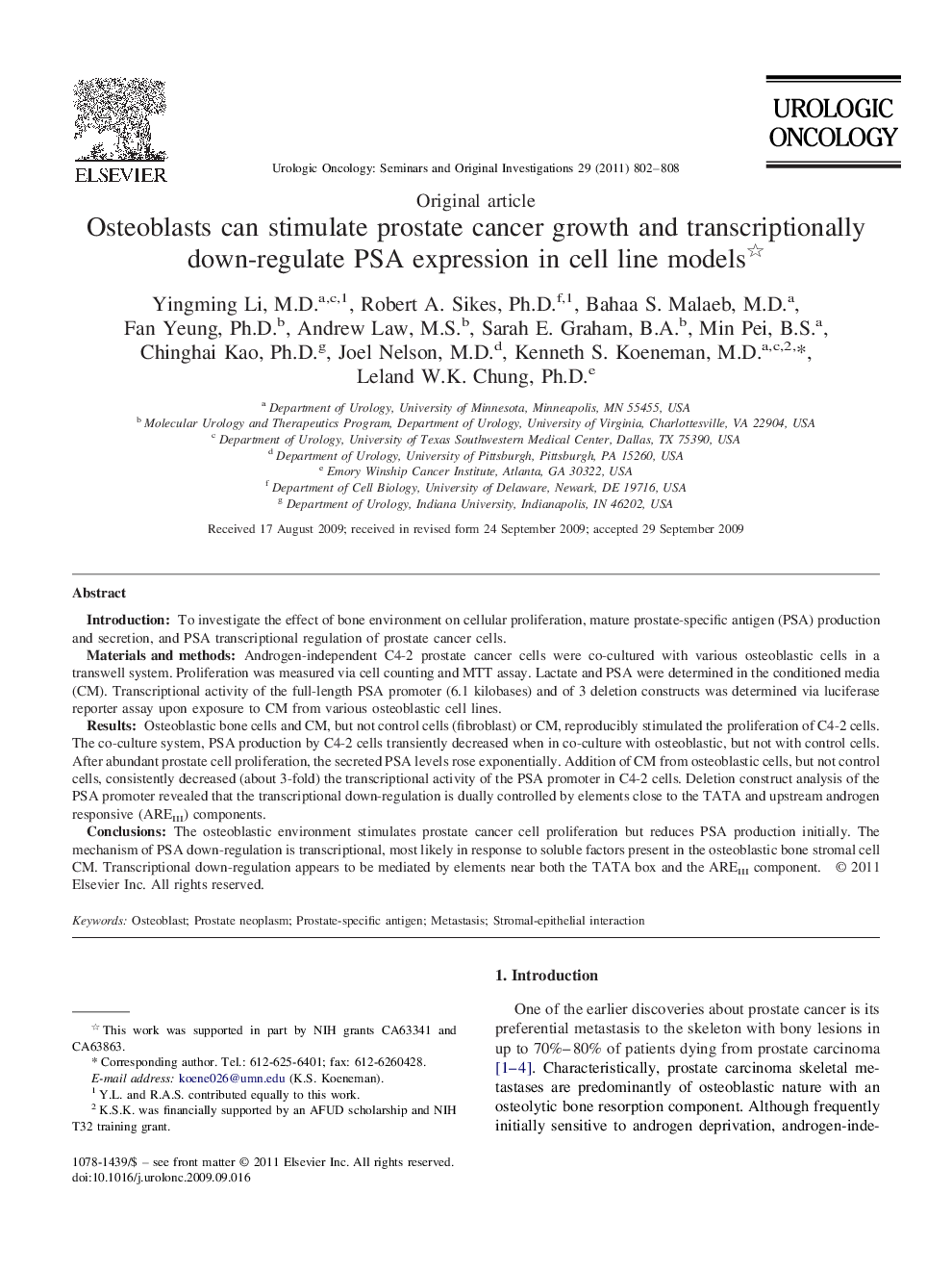| Article ID | Journal | Published Year | Pages | File Type |
|---|---|---|---|---|
| 4000322 | Urologic Oncology: Seminars and Original Investigations | 2011 | 7 Pages |
IntroductionTo investigate the effect of bone environment on cellular proliferation, mature prostate-specific antigen (PSA) production and secretion, and PSA transcriptional regulation of prostate cancer cells.Materials and methodsAndrogen-independent C4-2 prostate cancer cells were co-cultured with various osteoblastic cells in a transwell system. Proliferation was measured via cell counting and MTT assay. Lactate and PSA were determined in the conditioned media (CM). Transcriptional activity of the full-length PSA promoter (6.1 kilobases) and of 3 deletion constructs was determined via luciferase reporter assay upon exposure to CM from various osteoblastic cell lines.ResultsOsteoblastic bone cells and CM, but not control cells (fibroblast) or CM, reproducibly stimulated the proliferation of C4-2 cells. The co-culture system, PSA production by C4-2 cells transiently decreased when in co-culture with osteoblastic, but not with control cells. After abundant prostate cell proliferation, the secreted PSA levels rose exponentially. Addition of CM from osteoblastic cells, but not control cells, consistently decreased (about 3-fold) the transcriptional activity of the PSA promoter in C4-2 cells. Deletion construct analysis of the PSA promoter revealed that the transcriptional down-regulation is dually controlled by elements close to the TATA and upstream androgen responsive (AREIII) components.ConclusionsThe osteoblastic environment stimulates prostate cancer cell proliferation but reduces PSA production initially. The mechanism of PSA down-regulation is transcriptional, most likely in response to soluble factors present in the osteoblastic bone stromal cell CM. Transcriptional down-regulation appears to be mediated by elements near both the TATA box and the AREIII component.
